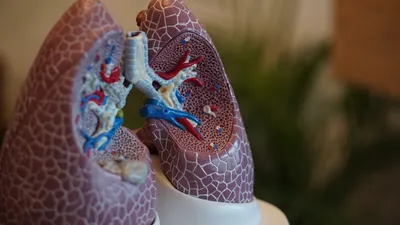
Understanding Chronic Digestive Disorders
Digestive disorders can significantly impact one's quality of life. Chronic digestive disorders, such as Irritable Bowel Syndrome (IBS), Crohn’s disease, and ulcerative colitis, require careful management to mitigate symptoms and improve daily functioning. Understanding these conditions is the first step towards effective management.
Common Symptoms and Causes
Recognizing the symptoms of chronic digestive disorders is crucial for timely diagnosis and treatment. Common symptoms include abdominal pain, bloating, diarrhea, constipation, and heartburn. These disorders may stem from a combination of genetic predisposition, environmental factors, and lifestyle choices.
Effective Management Strategies
Once a chronic digestive disorder is diagnosed, adopting the right management strategies is essential. A tailored approach addressing diet, medication, and stress management can improve outcomes significantly.
Dietary Modifications
Diet plays an integral role in managing digestive health. Identifying and avoiding trigger foods, such as dairy products, gluten, and high-fat foods, can alleviate symptoms. A diet rich in fiber, probiotics, and lean proteins often supports digestive function and overall gut health. Consulting with a nutritionist can help in developing a personalized diet plan.
Medication Management
Medications can help control symptoms and address underlying inflammation in chronic digestive disorders. Antispasmodics, anti-inflammatory drugs, and immune system suppressors are commonly prescribed for managing these conditions. Regular consultations with a healthcare provider ensure that medications are effective and adjusted as needed.
Incorporating Lifestyle Changes
In addition to medical treatments, lifestyle changes can have a profound effect on managing chronic digestive disorders.
Stress Reduction Techniques
Stress is a known trigger for many digestive issues. Techniques such as yoga, meditation, and deep-breathing exercises can help reduce stress levels. Taking time for self-care and ensuring healthy work-life balance are also beneficial.
Regular Physical Activity
Regular exercise supports digestion and can help alleviate some symptoms of chronic digestive disorders. Activities such as walking, swimming, and cycling improve gut motility and overall health. Tailoring the intensity and duration of exercise to fit personal capabilities is important, particularly for those with severe symptoms.
Conclusion
Managing chronic digestive disorders requires a comprehensive and individualized approach. By understanding these disorders, adopting effective dietary strategies, integrating medication regimens, and embracing lifestyle changes, individuals can significantly improve their quality of life and achieve better health outcomes. Regular follow-ups with healthcare providers are essential to adjusting management plans according to progress and emerging needs.
Top Adult Health Articles
Check out the most popular articles among our readers, featuring trusted advice and actionable insights on adult health.


Related Posts
View All



